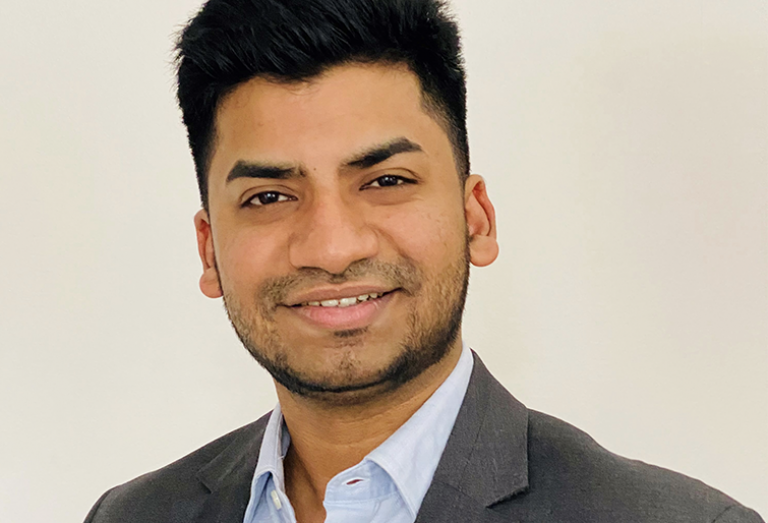Rohit Gupta awarded the Royal Society Newton International Fellowship
28 March 2022
Congratulations to Dr Rohit Gupta who has been awarded the prestigious Royal Society Newton International Fellowship!

Congratulations to Dr Rohit Gupta who has been awarded the prestigious Royal Society Newton International Fellowship!
He will be joining Professor Manish K. Tiwari’s group, Nanoengineered Systems Laboratory (NSL) to begin work on his project titled ‘Electrochemical Biosensors for Rapid Detection of Sepsis Biomarkers: Development, Mechanistic Modelling and Machine Learning’. His work will benefit from being embedded in UCL’s Wellcome/EPSRC centre for Interventional and Surgical Sciences (WEISS) and the nanoengineering facilities in UCL Mechanical Engineering.
Sepsis is a potentially life-threatening inflammatory disease that can cause multi-organ failure, tissue damage, and death. The number of annual deaths from Sepsis is nearly 11 million globally, and UK Sepsis cases are on the rise. Therefore new ways of rapidly detecting the severity of Sepsis are urgently needed.
The amount of specific proteins dictates the severity of Sepsis in the human body (also known as biomarkers). Well-established clinical diagnostic techniques for identifying these biomarkers are multi-step processes, time-consuming, and costly. Therefore, to address these drawbacks, Rohit’s research will aim to develop a low-cost, rapid, sensitive, and selective electrochemical biosensor based on nanoengineering techniques. This will allow for the detection Sepsis biomarkers in real-world biological fluids such as serum or blood.
It is hoped that the machine-learning approach adopted in this research will accurately correlate a combination of different levels of Sepsis biomarkers to a severity scale of the disease. If successful, the final optimized version of the low-cost biosensor will be tested and benchmarked against more complex samples representing real-world Sepsis positive patient samples. This will potentially offer further opportunities in the commercialization aspects of the biosensor and serve an urgent need of the community related to medical diagnostic techniques.
Rohit received a PhD in Mechanical Engineering from McMaster University, Canada in 2021, with an active parallel research role in biosensors through a MITACS Accelerate Fellowship. He has already co-authored 13 peer-reviewed international journal articles across variety of research areas such as heat transfer, electronics cooling, data-driven modelling techniques, protein biosensors, water quality monitoring sensors, and biological wound healing models. He is currently working as a postdoctoral research associate at the University of Glasgow on the programme grant ‘Decentralized Water Technologies’ funded by EPSRC and Scottish Water.
The proposed research dovetails with the various sensor-fabrication and nanoengineering expertise of Professor Tiwari’s group and the related platform in WEISS.
 Close
Close

